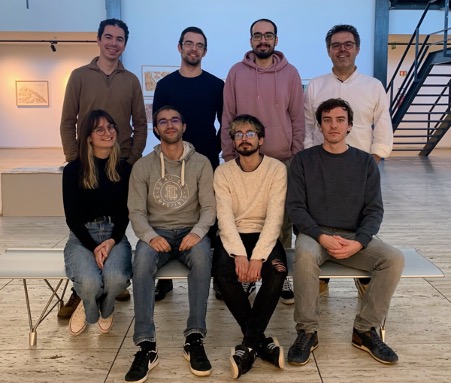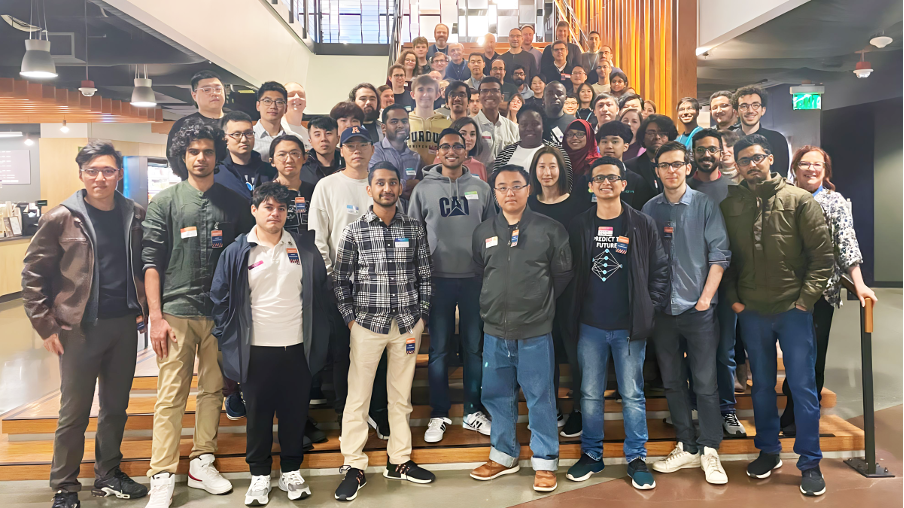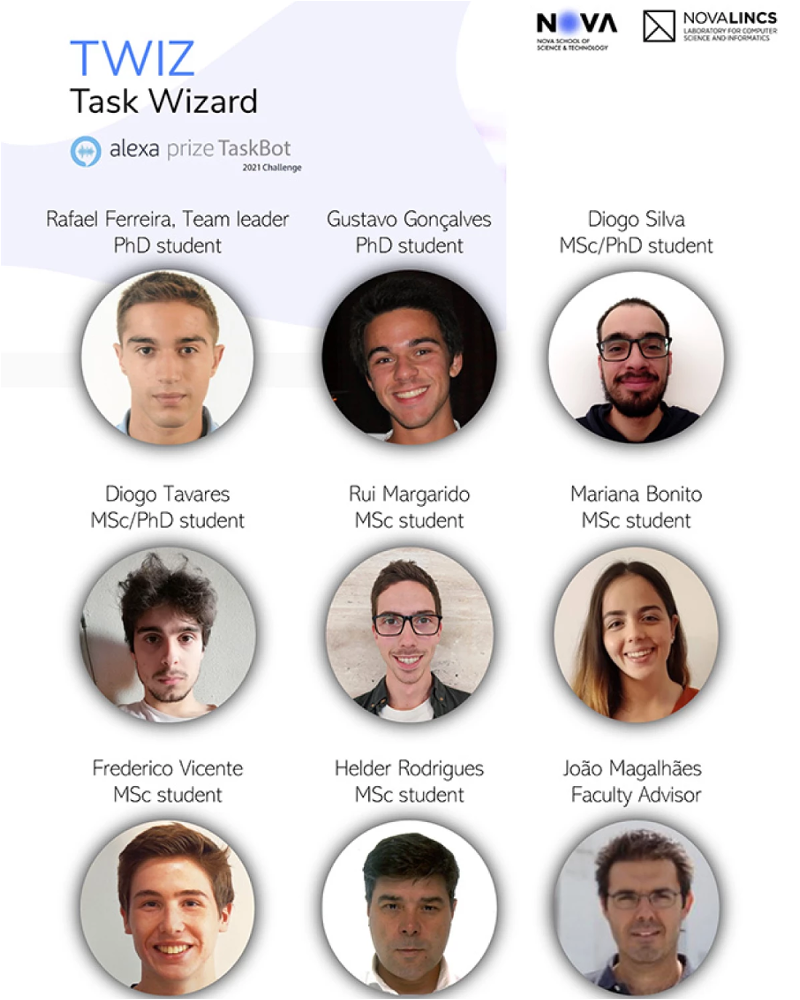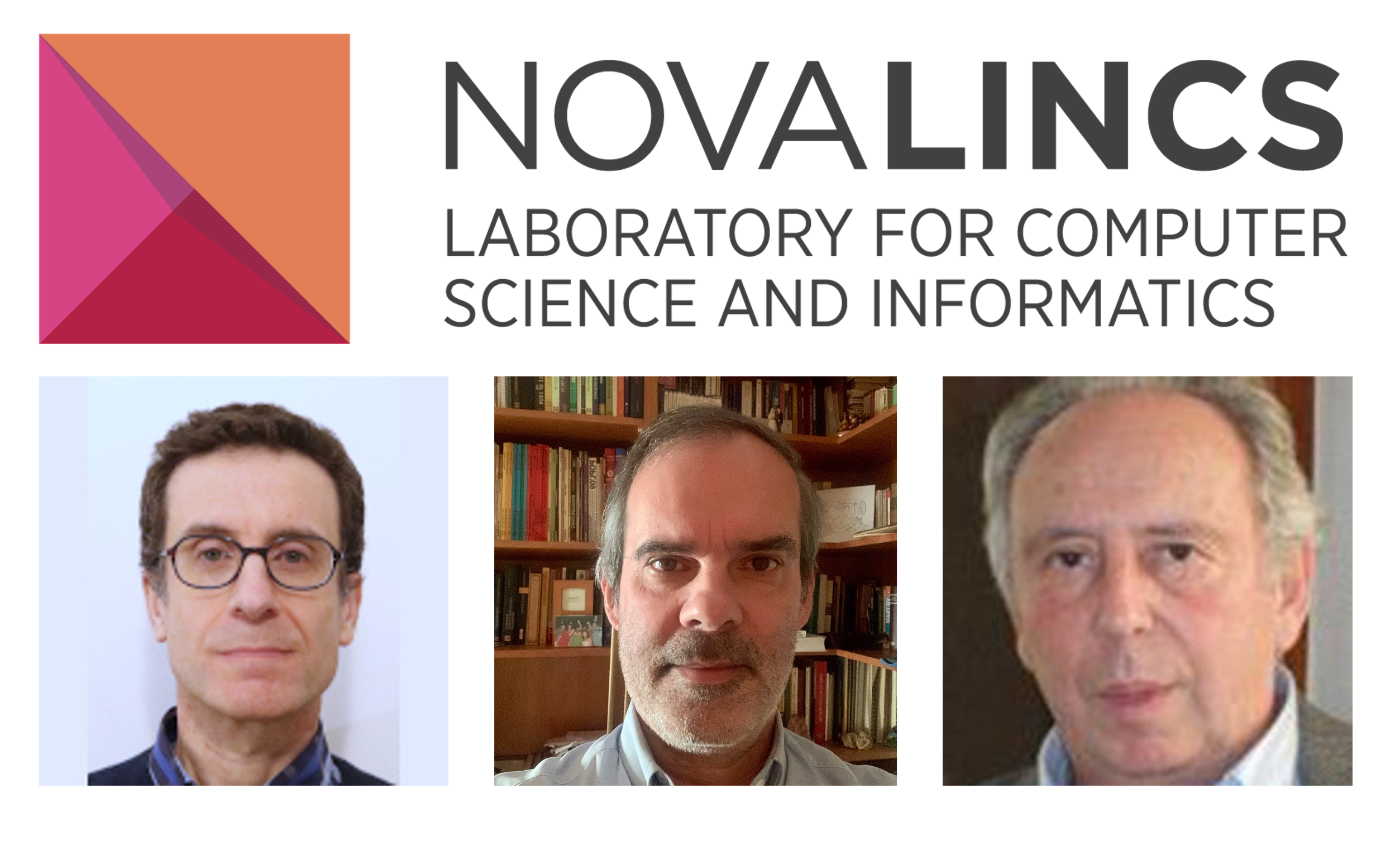News

NOVA LINCS PhD student, Ricardo Veiga, selected for the Future Talent Programme’s Lightning Talk Challenge
Ricardo Veiga, PhD student supervised by NOVA LINCS researcher João Rodrigues at the University of the Algarve, has been selected for The Future Talent Programme’s Lightning Talk Challenge (FTP24), promoted by the GÉANT Network, that interconnects Europe’s national research and education networks. The GÉANT Future Talent Programme’s Lightning Talk Challenge offers students and young professionals […]
Read more
GlórIA: the new Portuguese-European Large Language Model
GlórIA is the new Portuguese LLM, developed at the NOVA LINCS Multimodal Systems Group. GlórIA is a PT-PT top-performing LLM, capable of generating high-quality texts on a multitude of topics, such as History, Environment, Culinary, and many more. Led by Prof. David Semedo and together with Ricardo Lopes and Prof. João Magalhães, the team has […]
Read more
NOVA LINCS PhD student, Diogo Lavado, distinguished by REN and Fraunhofer Portugal
Diogo Lavado, NOVA LINCS PhD student, was distinguished by REN Award and the Fraunhofer Portugal Challenge Master Thesis Award, for his master thesis “Detection of Power Line Supporting Towers Via Interpretable Semantic Segmentation of 3D Point Clouds”. His thesis aims to contribute to improving the inspection and maintenance work of power transmission networks. The innovative […]
Read more
João Leite elected Vice-President of the Portuguese Association for Artificial Intelligence
The PI of NOVA LINCS Intelligent Systems Group, João Leite, was elected to the position of Vice-President of the Portuguese Association for Artificial Intelligence (APPIA) for the 2024-2025 biennium. The Portuguese Association for Artificial Intelligence (APPIA), founded in 1984, aims to promote research, teaching, and dissemination of artificial intelligence as a scientific domain. APPIA is […]
Read more
NOVA LINCS’s TWIZ team earn first place in the Alexa Prize TaskBot Challenge 2
The team led by João Magalhães, NOVA LINCS researcher from Multimodal Systems Group and Professor at the Department of Computer Science at NOVA School of Science and Technology, ranked first place among the 10 international research groups selected by Amazon to participate in the Alexa Taskbot research challenge.
Read more
NOVA LINCS team is among the five finalists selected for Alexa Prize TaskBot Challenge 2
For the second year in a row, the TWIZ team, supervised by the NOVA LINCS researcher João Magalhães is among the top 5 finalists in the Alexa Prize TaskBot Challenge to advance Conversational AI.
Read more
NOVA LINCS is among the 10 research labs selected by Amazon for Alexa Prize TaskBot Challenge 2
The TWIZ team, supervised by the NOVA LINCS researcher João Magalhães, is among the 10 teams around the globe selected by Amazon to participate in the Alexa Prize TaskBot Challenge 2, a university challenge focused on developing multimodal (voice and vision) conversational agents that assist customers in completing tasks requiring multiple steps and decisions.
Read more
World Logic Day | Talks at NOVA LINCS
To celebrate the World Logic Day, NOVA LINCS will host two talks: "Logic, Computation, and Programming Languages" by Luís Caires and "Logic-based Explanations for Neural Networks" by João Leite.
Read more
iFetch results presented at CMU Portugal Summit 2022
The results of the project iFetch (Multimodal conversational agents for the online fashion Marketplace) were presented at CMU Portugal Summit 2022 New Frontiers in tech. João Magalhães, NOVA LINCS researcher from Multimodal Systems Group, gave the project presentation, with a summary of the major findings achieved by the research team at NOVA Laboratory for Computer […]
Read more
NOVA LINCS researchers receive Best Paper Award at ICGI 2022
Ana Rita Rebelo, PhD student at NOVA, and her supervisor, NOVA LINCS Multimodal Systems researcher Rui Nóbrega, were awarded the best paper award at the 2022 edition of the International Conference on Graphics and Interaction (ICGI 2022) for their paper entitled Tangible Objects in Virtual Reality for Visuo-Haptic Feedback. Including tangible objects in Virtual Reality […]
Read more
NOVA LINCS researchers receive Best Paper Award at INFORUM 2022
João Geraldo, student of the Integrated Master in Computer Science at NOVA, and his supervisor, NOVA LINCS Software Systems researcher Bernardo Toninho, were awarded the best paper award at the 13th edition of Simpósio de Informática (INFORUM 2022), for their paper entitled Making Session Types Go. The work introduces a compiler for a programming language […]
Read more
NOVA LINCS leads a research project with 7 million euros funding through the Horizon Europe programme
TaRDIS (Trustworthy and Resilient Decentralised Intelligence for Edge Systems), a project coordinated by Carla Ferreira, a researcher from NOVA Laboratory for Computer Science and Informatics FCT NOVA, gathers experts in the areas of programming languages, artificial intelligence, distributed systems, among others, “thus reaching all the pillars of knowledge in the scientific area of informatics”. With […]
Read more
NOVA LINCS Ciência Viva Internship Program
NOVA LINCS and DI FCT NOVA offered an internship program for 9th grade students about basics of Informatics and Computer Science.
Read more
Luis Caires elected Chair of the Steering Committee of ESOP
ESOP is the most prestigious Conference on the broad field of programming languages and systems, and is a member of European Joint Conferences on the Theory and Practice of Software (ETAPS).
Read more
How current AI language models actually work?
Luis Caires, NOVA LINCS Director and coordinator of the Software Systems Group, discusses the recent Google AI sentience issue, and explains in simple terms how current AI language models actually work, and why we are still far from the Singularity.
Read more
Alexa Challenge: NOVA LINCS creates one of the top three Conversational AI systems
The team led by João Magalhães, NOVA LINCS researcher from Multimodal Systems Group and Professor at the Department of Computer Science at NOVA School of Science and Technology, ranked silver among the 10 international research groups selected by Amazon to participate in the Alexa Taskbot research challenge.
Read more
NOVA LINCS researcher receives Distinguished Paper Award at ECOOP 2022
Bernardo Toninho, NOVA LINCS researcher from the Software Systems Group, received the Distinguished Paper Award at the 36th European Conference on Object-Oriented Programming (ECOOP 2022).
Read more
10th Distinguished Lecture by Fernando Pereira, Google Research (USA)
"Does Language Mirror the Mind? A Personal Journey" NOVA LINCS Distinguished Lecture by Fernando Pereira, Google Research (USA)
Read more
Henrique João Domingos, NOVA LINCS cybersecurity researcher, comments about the role of the internet in the time of war
Henrique João Domingos, NOVA LINCS cybersecurity researcher, comments about the role of the internet in the time of war.
Read more
Three NOVA LINCS researchers among the World’s Top 2% Scientists list
Luís Alexandre, Luís Caires and Luís Moniz Pereira researchers at NOVA Laboratory for Computer Science and Informatics (NOVA LINCS), were ranked among the top 2% of the worlds most highly-cited scientists, according to the updated study published by Stanford University (USA).
Read more